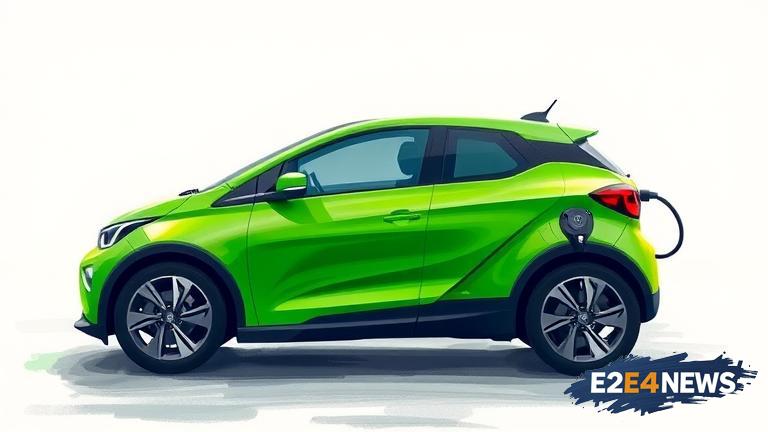The Indian government has announced a comprehensive plan to promote the adoption of electric vehicles (EVs) in the country. The plan includes a range of incentives and initiatives to encourage the use of EVs, including tax exemptions, subsidies, and investment in charging infrastructure. The government aims to have at least 30% of new vehicle sales be electric by 2030. To achieve this goal, the government will provide subsidies to manufacturers and buyers of EVs, as well as invest in the development of charging infrastructure. The plan also includes measures to promote the use of EVs in public transportation, such as buses and taxis. The government will also provide incentives to states that promote the use of EVs, such as offering additional subsidies and investments in charging infrastructure. The plan is expected to have a significant impact on the environment, as EVs produce zero emissions and can help reduce air pollution in urban areas. The government has also announced plans to develop a network of charging stations across the country, with a goal of having at least one charging station for every 3,000 vehicles. The plan has been welcomed by the automotive industry, which sees it as a major opportunity for growth and development. Several major automakers have already announced plans to launch new EV models in India, and the government’s incentives are expected to encourage even more companies to enter the market. The plan is also expected to create new job opportunities in the EV sector, including in manufacturing, sales, and maintenance. However, some experts have raised concerns about the feasibility of the plan, citing the high cost of EVs and the lack of charging infrastructure in many parts of the country. Despite these challenges, the government remains committed to its goal of promoting the adoption of EVs and reducing the country’s dependence on fossil fuels. The plan is part of a broader effort to reduce greenhouse gas emissions and mitigate the impacts of climate change. India has set a goal of reducing its carbon emissions by 33-35% by 2030, and the promotion of EVs is seen as a key part of this effort. The government has also announced plans to develop a national EV policy, which will provide a framework for the development of the EV sector. The policy will include measures to promote the use of EVs, as well as regulations to ensure safety and quality standards. The government has also established a task force to oversee the implementation of the plan and to provide recommendations for further development of the EV sector. The task force will include representatives from the automotive industry, as well as from government agencies and other stakeholders. The plan has been praised by environmental groups, which see it as a major step forward in reducing air pollution and greenhouse gas emissions. However, some experts have raised concerns about the potential impact of the plan on the country’s energy grid, citing the need for significant investments in renewable energy and energy storage. Despite these challenges, the government remains committed to its goal of promoting the adoption of EVs and reducing the country’s dependence on fossil fuels. The plan is expected to have a significant impact on the Indian economy, with the potential to create new job opportunities and stimulate economic growth. The government has also announced plans to develop a network of EV charging corridors along major highways, which will provide charging facilities for EV users. The corridors will be developed in partnership with private companies, and will include fast-charging stations and other facilities. The plan has been welcomed by the public, with many Indians expressing enthusiasm for the idea of owning an EV. However, some experts have raised concerns about the potential impact of the plan on the country’s automotive industry, citing the need for significant investments in new technologies and manufacturing facilities. Despite these challenges, the government remains committed to its goal of promoting the adoption of EVs and reducing the country’s dependence on fossil fuels.
